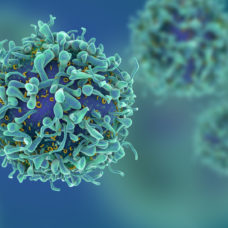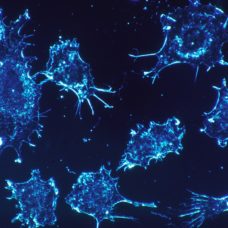Researchers are reportedly developing a personalized vaccine for the treatment of ovarian cancer.
Researchers from the University of Pennsylvania have created a safe, personalized vaccine that could lengthen the lifespan of patients with ovarian cancer. The new cancer vaccine was produced using the patients’ own immune cells.
In the study, immune cells were exposed in a laboratory to the patients’ tumor cells. They were then injected into the patient to stir a broader immune response.
The pilot trial was conducted on patients with advanced ovarian cancer. According to the researchers, the study aims to determine the safety and feasibility of the new treatment. The findings show signs that it could be effective.
Ovarian cancer is considered a “silent killer” type of cancer as it often remains undetected until it’s already in its advanced stage. About 85 percent of patients who undergo surgery and chemotherapy suffer from relapse or develop resistance to the treatment.
Read More: “Groundbreaking” New Cancer Vaccine Will now Undergo Human Trials
“This vaccine appears to be safe for patients, and elicits a broad anti-tumor immunity—we think it warrants further testing in larger clinical trials,” Dr. Janos Tanyi, study lead author and an assistant professor of obstetrics and gynecology at Penn Medicine, said.
To date, most cancer vaccines developed are designed to determine and attack only a specific molecule found on the cancerous cells of the tumor. The researchers, led by Dr. Lana Kandalaft, took a different approach. They made a cancer vaccine that is personalized for an individual patient.
The personalized vaccine is said to be a “whole-tumor vaccine” that could stimulate immune response for hundreds, or thousands, of tumors and not just on one tumor-associated target.
“The idea is to mobilize an immune response that will target the tumor very broadly, hitting a variety of markers including some that would be found only on that particular tumor,” Dr. Tanyi explained.
The team of researchers tested the vaccine on 25 patients with each receiving a dose of the personalized vaccine every three weeks. Half of the patients in the pilot trial showed a significant increase in the number of their T-cells, an indication of positive response to the treatment.
“The 2-year overall survival rate of these responder patients was 100 percent, whereas the rate for non-responders was just 25 percent,” Tanyi went on to say.
Other experts like Dr. Otis Brawley of the American Cancer Society believes that this new study warrants a larger clinical trial. However, he remains vigilant about the potential risk of this cancer vaccine.
“Survival analysis is prone to some biases, which can mislead even the most experienced of clinical trialists,” Brawley said.













Comments (0)
Most Recent